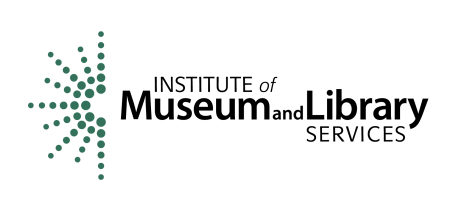Strengthening Libraries as Entrepreneurial Hubs
In May 2018, ULC launched this initiative in collaboration with the Ewing Marion Kauffman Foundation to strengthen the role public libraries play in nurturing and promoting entrepreneurship in their communities.
Through 2022, cohort libraries worked hard to leverage and develop the library’s unique assets and capacities to create hubs for entrepreneurship and advance equity and community economic health by increasing support for all entrepreneurs and particularly women, people of color, immigrants and veterans.
Entrepreneurship Toolkit
ULC’s Closing the Entrepreneurship Gap: Tools for Libraries offers strategies and resources to help libraries level-up as entrepreneurial hubs, including COVID-19 responses.
Entrepreneurship: Where Urban Libraries Fit
Knology, a social science research organization, with the support of the ULC and the Ewing Marion Kauffman Foundation, assessed the range and impact of entrepreneurship programs offered by urban libraries across the US and released a white paper in April 2022. This study documented the ways that libraries currently support entrepreneurs. It also identified areas where the demand for business-related programming is increasing.
Starting one’s own business may soon become the most viable path to achieving the American dream. Knowing this, ULC is bringing together 12 public library systems from across the U.S. and Canada to explore ways libraries can reach and engage entrepreneurs in their communities — particularly people of color, women, immigrants and veterans.
Participant Library Projects
Austin Public Library (Texas) worked to extend the reach of Austin’s Small Business Program by bringing programming, networking and resources to historically underserved and hard-to-reach residents using the library’s 19 neighborhood branches.
Baltimore County Public Library and Enoch Pratt Free Library (Md.) collaborated to build a unified support infrastructure as a foundation for working together to meet the needs of underserved small business entrepreneurs, particularly solo entrepreneurs, in the region.
DC Public Library developed a package of resources and programs to support returning justice-involved residents in becoming entrepreneurs and will provide training for library staff to guide them in supporting this special audience.
Durham County Library (N.C.) developed policies, procedures and contracts that will set the tone for the library’s new co-working space that is currently under construction as part of the renovation and transformation of the system’s Main Library.
East Baton Rouge Parish Library (La.) worked to expand public awareness of the library as a starting point for potential small business startups and entrepreneurs, particularly underrepresented groups that face extra challenges including offering open business clinics at library branches and community centers in neighborhoods where the most economically challenged residents live.
Kansas City Public Library (Mo.) assessed the special workforce needs of the city’s refugee and immigrant populations in order to align library resources, create partnerships and determine where and how the library should focus its efforts to have the greatest impact.
King County Library System (Wash.) developed and piloted a replicable, evidence-based strategy for effectively engaging the county’s small business community focusing particularly on refugees and immigrants.
Mid-Continent Public Library (Mo.) addressed the opportunities that food service businesses offer to immigrant populations in order to sharpen the resources and support that the library provides to this population.
St. Louis County Library launched a long-term objective to strengthen the local economy by identifying key components of a successful model for working with discrete populations in the county entrepreneurial ecosystem. The process will begin with immigrant and student populations.
Toledo Lucas County Public Library (Ohio) created a business outreach team to expand the library’s capacity to provide resources and referrals for the region’s growing entrepreneur communities from startups to mom-and-pop shops — with an initial focus on women and immigrant entrepreneurs.
Toronto Public Library created a Newcomer Entrepreneur in Residence program to provide information, personalized support, opportunities for skills development and connections to successful entrepreneurs to introduce newcomers to the Canadian economic and labor market and successful business practices in a welcoming environment.
ULC's Leadership Brief on Strengthening Libraries as Entrepreneurial Hubs
This Leadership Brief focuses on the public library’s role as an essential resource for entrepreneurs and core component of local entrepreneurial ecosystems. It highlights the exciting work already underway in libraries to advance the entrepreneurial spirit and identifies seven strategies for library leaders to become more intentional about implementing programs that support local economic development goals and reach potential entrepreneurs most in need of guidance and encouragement.
Summary of ULC's National Scan on How Libraries Are Currently Supporting Entrepreneurs
With the support of the Ewing Marion Kauffman Foundation, conducted a national scan of how libraries are currently supporting entrepreneurs in their communities. The purpose of this scan was to develop a baseline of information about the state of library entrepreneurial practice in order to identify specific models and promising approaches for further study.

